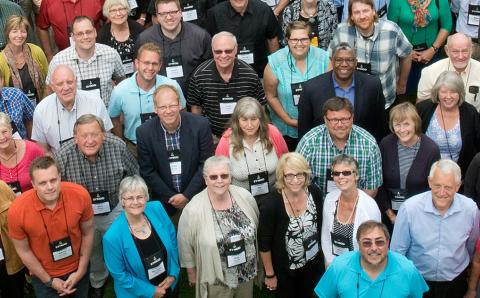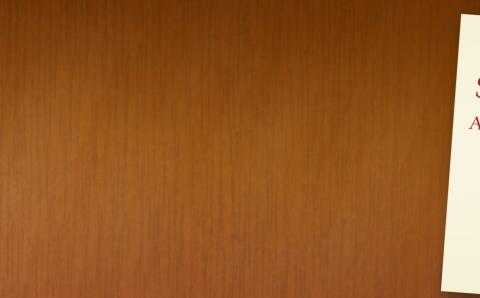I spent a good part of my week at synod, the general assembly of the Christian Reformed Church. I was gratified with the respectful, civil, and orderly conduct of the delegates’ deliberations on difficult issues. Most of all, I honor the patient presence of synod’s president, Paul Devries, and other officers. The manner of the debate displayed the CRC at its best.
I was also struck by how delegates worked hard to make room for other people’s ideas and positions. On the Belhar Confession and on the Doctrine of Discovery there was a concerted effort to reach decisions that accommodated a larger share of the delegates.
Sadly, that was not the case with the issues surrounding the report of the Committee to Provide Pastoral Guidance re Same-Sex Marriage. Synod recommended the guidelines of the committee’s minority report, even though it was not intended to stand apart from the majority report. Furthermore, those recommendations are, to my mind, unnecessarily harsh and invasive.
They prohibit all officebearers from not only officiating, which is understandable, but also from participating in a same-sex wedding. This means, for example, that an elder could be disciplined for offering a prayer at her son’s same-sex wedding, a pastor for walking his daughter down the aisle, or a deacon for “standing up” for his sister. All these situations were mentioned. In my opinion, this is less about pastoral guidance and more more about policing. These are issues of personal conscience for officebearers, and this kind of ecclesiastical interference may cause great pain for families, individuals, and congregations.
Synod also decided that the CRC needs to give further study to the issues surrounding human sexuality and appointed a study committee to present “A Biblical Theology of Human Sexuality.” Of course we need such a study in today’s society. But synod then restricted the voices that could be heard in this study. Only those who “adhere to the CRC’s biblical position on marriage and same-sex relationships” (the 1973 and 2002 reports on homosexuality), will be at the table.
As far as I can determine, this is the first time synod has applied a litmus test other than Scripture and the confessions in appointing a study committee. It’s a dangerous precedent. Synod has determined to silence the voices of all who disagree and to bar them from the table. This raises some serious questions.
Has synod, in effect, declared that there is room for only one biblical and acceptable response to the issues of marriage and same-sex attraction? And what of those individuals, congregations, or classes who have differing views? Will they be silenced and their biblical, theological, and pastoral reasons be unheard and ignored? Will they possibly even be disciplined for expressing them?
Over my 46 years of ministry, my beloved church has courageously, and at some cost, tackled important and divisive issues like racism, women in office, and creation and science. On each of these issues room was made for other opinions, other voices. No litmus test was applied. Can we no longer tolerate dissenting voices in this issue that affects so many lives?
I still hope that we will find ways to make room. I hope that congregations will send overtures pointing out why the pastoral guidelines for officebearers are too restrictive and invasive. I hope that the newly appointed committee and future synods will see the wisdom of a long-standing principle in our denomination by making room for other voices, other viewpoints.
Let’s not be ruled by fear but by mutual trust; not by litmus tests but open dialogue; not by excluding other voices but by listening to them.
About the Author
Len Vander Zee is a retired CRC pastor now serving as interim minister of preaching at Church of the Servant CRC in Grand Rapids, Mich.









